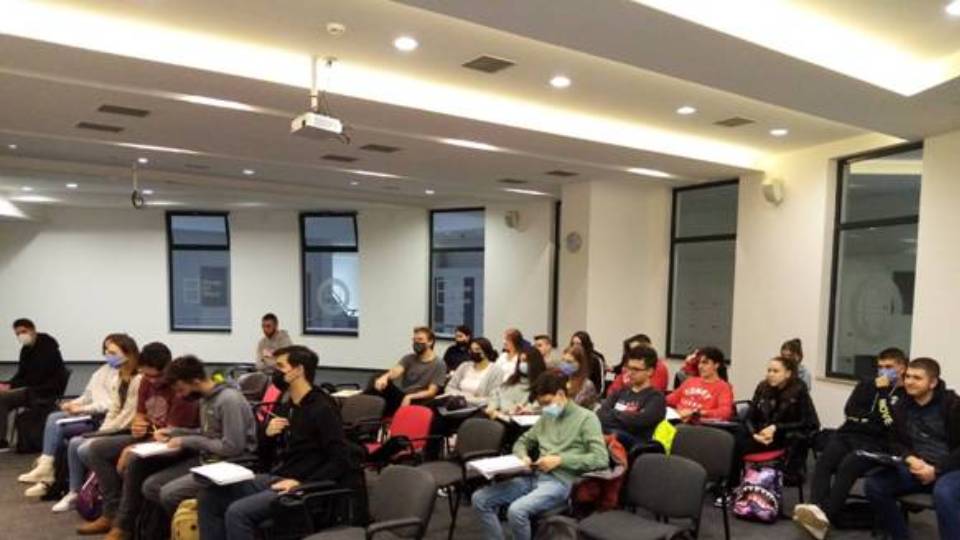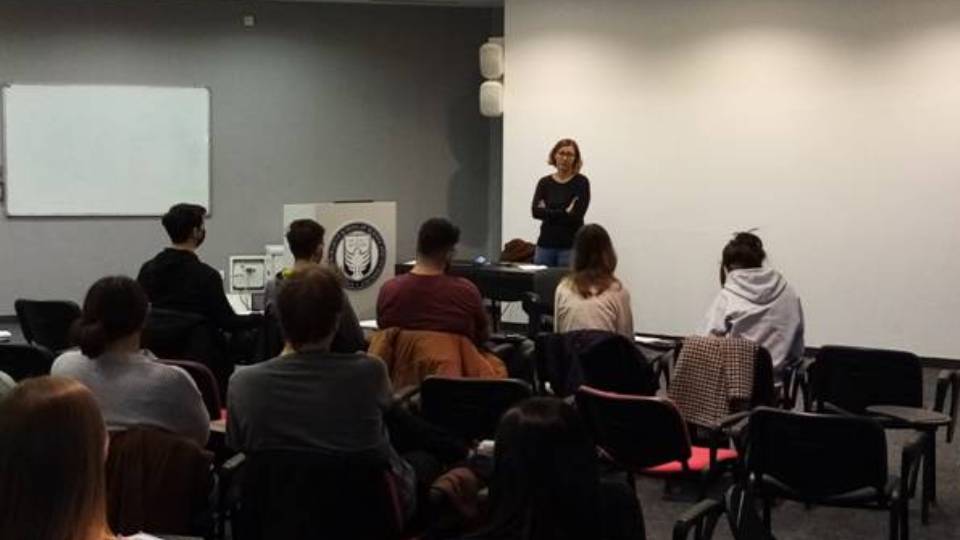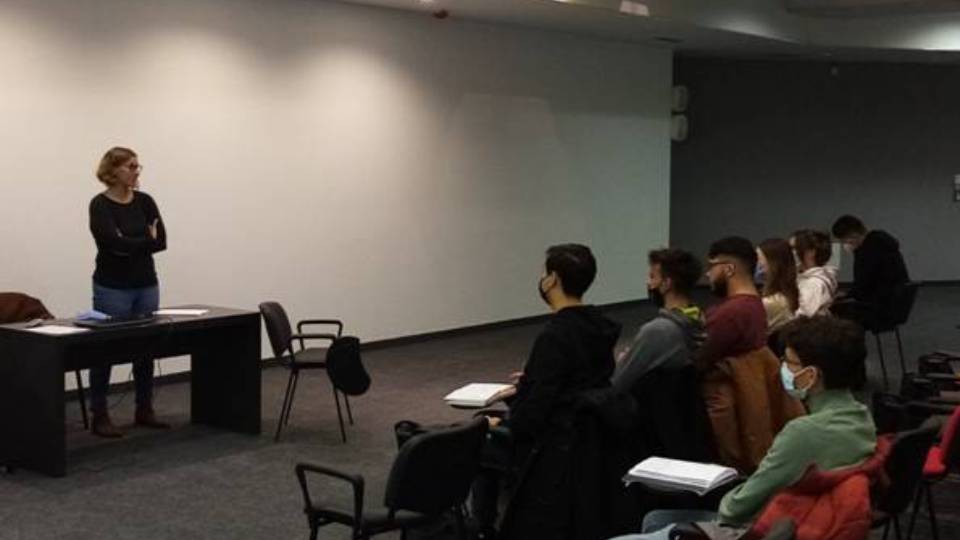Dec 2021
UNIGEM: 16 DAYS OF ACTIVISM - SARAJEVO SCHOOL OF SCIENCE AND TECHNOLOGY

As part of the UNIGEM (University and gender mainstreaming) project, three workshops were held at the SSST (Sarajevo School of Science and Technology) for students of the Study of Informatics, in anticipation of the 16 Days of Activism campaign. The leader of the first workshop was prof. dr. Jasminka Hasić Telalović, and the workshop was attended by a total of 64 participants.
The workshops discussed gender in STEM and higher education, SSST's efforts to develop a Gender Equality Plan, the UNIGEM project and SSST's participation in it, and the global 16 Days of Activism Campaign Against Gender-Based Violence.
Students' exposure to gender issues ranged from none to very conscious problems. Students received mostly positive gender issues, but some students expressed great dissatisfaction with the existence of programs (such as IT girls) that were made exclusively for girls. Several students shared their personal experiences with gender equality issues and expressed the importance of this topic for their personal lives.
The second workshop was realized for students of the Faculty of Medicine. The leader of the workshop was prof. dr. Lejla Pašić, and was attended by a total of 19 participants.
Three workshops were held for first and second year pharmacy students (9 students) and third year medical students (10 students). The following topics were discussed: Students' attitude towards gender-based violence, I need mapping, SSST's efforts to develop a Gender Equality Plan, UNIGEM project and SSST's participation in it, 16 Days of Activism Against Gender-Based Violence Campaign.
Students' awareness of gender topics varied from none (1st year pharmacy students) to intermediate (2nd year pharmacy students) to very conscious (3rd year medical students). All students felt that there was a need to raise awareness on this topic. Students of the first year of Pharmacy expressed the need to get acquainted in more detail with this issue. The second year students of Pharmacy recognized emotional violence through peer pressure and social networks as the problem that affects them the most in terms of gender-based violence. Third-year students have expressed a desire to contribute to this field through activism. They identified physical violence and the frequency of femicide as the most important aspects of gender-based violence in Bosnia and Herzegovina. On a personal level, emotional violence through peer and social media pressure and sexual violence in terms of pressure to consent were the problems that affected them the most. Second and third year students expressed a desire to participate in the 16 Days of Activism campaign against gender-based violence.
The third workshop was realized by prof. dr. Maja Savić-Bojanić for students of political science and international relations. A total of 24 students attended. The workshop was entitled: Gender Violence and Culture: What is the connection?
The lecture focused on explaining how culture is used to justify gender inequality and violence by evoking traditional cultural beliefs about how women should be treated. Within this broader context, several fundamental issues were discussed: Violence against women, Three interrelated domains of culture that perpetuate violence (culture of gender-based violence and misogyny; ethnic and identity communities), Examples of gender-based violence.
Given their social education, students were fully aware of the problem of gender-based violence, but were given a new perspective in terms of the cultural influences that exist in terms of accepting, justifying and “living” gender-based violence. Most students had a very emotional response after watching videos of Afghan girls being sold for money, a case we talked about related to forced marriage and poverty, which are both forms of gender-based violence acceptable in certain cultural domains. Several female students shared their personal experiences with gender equality issues and expressed the importance of this topic for their personal lives.























